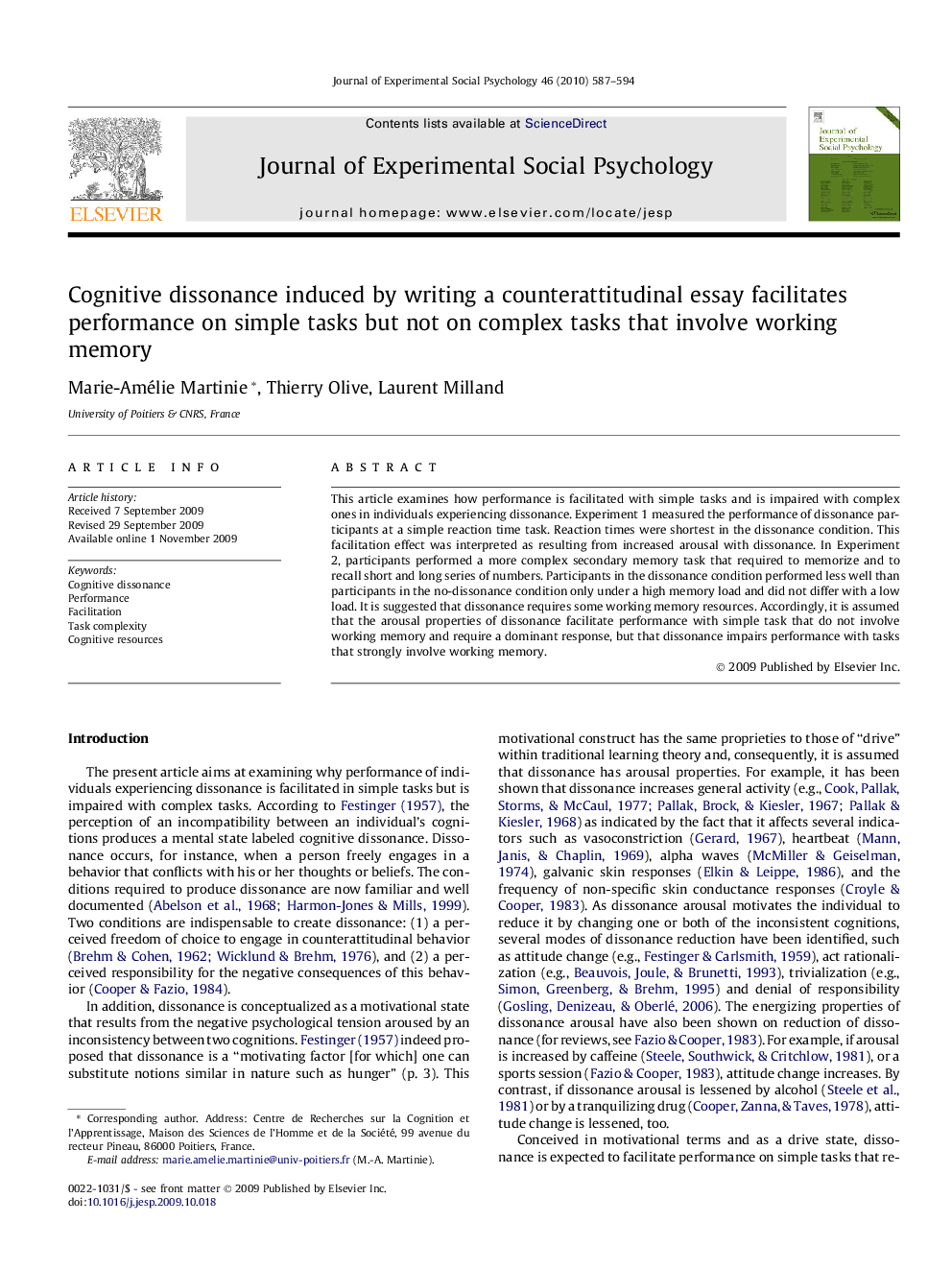| Article ID | Journal | Published Year | Pages | File Type |
|---|---|---|---|---|
| 948703 | Journal of Experimental Social Psychology | 2010 | 8 Pages |
This article examines how performance is facilitated with simple tasks and is impaired with complex ones in individuals experiencing dissonance. Experiment 1 measured the performance of dissonance participants at a simple reaction time task. Reaction times were shortest in the dissonance condition. This facilitation effect was interpreted as resulting from increased arousal with dissonance. In Experiment 2, participants performed a more complex secondary memory task that required to memorize and to recall short and long series of numbers. Participants in the dissonance condition performed less well than participants in the no-dissonance condition only under a high memory load and did not differ with a low load. It is suggested that dissonance requires some working memory resources. Accordingly, it is assumed that the arousal properties of dissonance facilitate performance with simple task that do not involve working memory and require a dominant response, but that dissonance impairs performance with tasks that strongly involve working memory.
